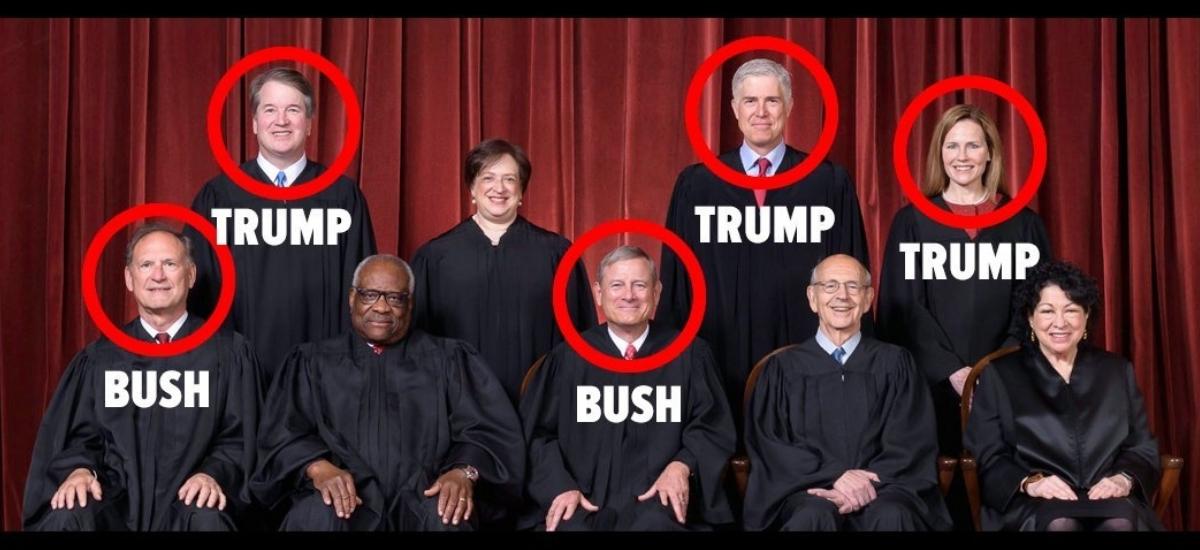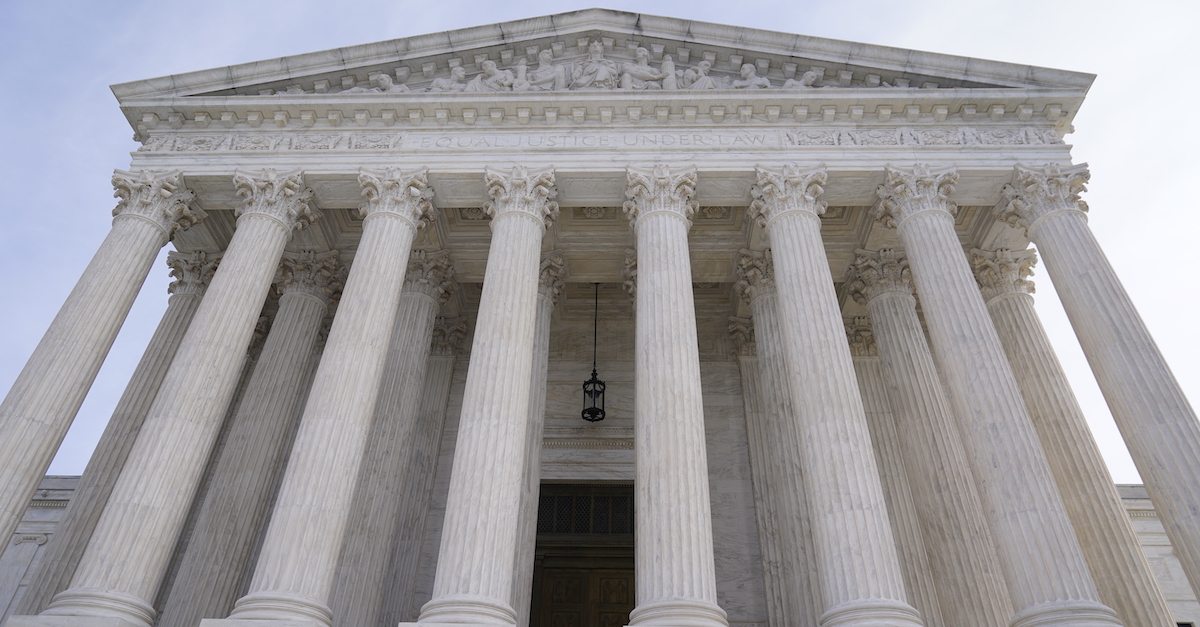
This is part two of an exclusive Occupy.com series examining the hyper-partisan Supreme Court and solutions to reining it in. Click here to read part one.
The Supreme Court of the United States’ (SCOTUS) six-member conservative majority has cemented itself as a steadfast opponent of democracy and voting rights, organized labor, and civil rights for marginalized communities. Following the court’s overturning of the Roe v. Wade decision, paving the way for states to criminalize the termination of pregnancies once again, NPR deemed the Roberts court the most conservative in 90 years. And that was before the latest term, in which SCOTUS struck down President Joe Biden’s student debt cancellation program and ruled in favor of a plaintiff who sought to discriminate against LGBTQ+ individuals.
The situation seems even more dire when considering that a full third of the court was appointed by a president who is currently facing 91 felony counts in three separate jurisdictions – and whose 2024 eligibility has come under scrutiny given his role in the January 6 insurrection. SCOTUSBlog publisher Tom Goldstein said America is likely “stuck with” this current court for the next quarter of a century. NPR’s Nina Totenberg broke down how extreme the nation’s highest legal body has become:
In overturning Roe v. Wade, the court erased a half century of court precedents and eliminated the constitutional right to abortion. Just weeks after the shootings in Uvalde, Texas, the court issued a broadly worded opinion making it more difficult to regulate guns. In a major environmental case, the court curbed the EPA's ability to deal with climate change, and in so doing signaled that other government assertions of regulatory power in the name of health and safety could be on the chopping block. In two religion cases, the court barely mentioned the concept of separation between church and state; rather, it expanded public funding options for religious schools and ruled in favor of a high school football coach who wanted to pray on the 50-yard line, a significant expansion of teachers' rights to public, even ostentatious, religious expression while on the job.
But despite the seemingly omnipotent power of the current Supreme Court, SCOTUS’ immense power could ultimately be reined in by reimagining the way we conduct presidential elections. While that may seem like a tall order, it’s a goal that’s far more in reach than we may realize.
SCOTUS would be far less partisan without the electoral college
It’s important to note that the only reason the Supreme Court has become so extreme is because of the electoral college. Of the six members of the conservative majority, five were appointed by presidents who lost the popular vote; George W. Bush (R) appointed Chief Justice John Roberts and Justice Samuel Alito, and Donald Trump (R) appointed Justices Amy Coney Barrett, Neil Gorsuch – who is sitting in a stolen seat that should have been filled by President Barack Obama (D) – and Brett Kavanaugh. Had popular vote winners Al Gore and Hillary Clinton been the ones to make those appointments, the Supreme Court would have an 8-1 liberal majority.
To most foreign observers, the US’ process of electing presidents can seem incredibly confusing. In a democracy, it stands to reason that the candidate who wins the most votes would win the election. But despite Donald Trump losing the popular vote by nearly three million ballots, he became president by winning a majority of the 538 total electoral college votes divvied up among all 50 states based on each state’s population. This means that because Trump won just 77,744 more votes across Michigan, Pennsylvania, and Wisconsin, he was able to secure the 270 electoral votes needed to become the chief executive of the third most populous country in the world, and put enough justices on the Supreme Court to ensure a conservative majority for decades.
Even when considering the 10 other countries that have electoral college-type systems, the US stands alone in choosing its chief executive in this way. Other electoral colleges like Estonia, Madagascar, Myanmar, and the Vatican either use the system to elect members of their respective legislature, use that system in lieu of the population voting at all, or, like India, use it to elect a figurehead with no real executive power. The US is the only developed democracy to use the electoral college to elevate someone to our highest political office.
If it seems like such a system is designed to foster inequality, that’s because it is! As the Brennan Center for Justice explained, the electoral college was implemented as a compromise to give the five Southern states that housed nearly all of the country’s slaves (who could not vote) proportionally more representation:
Behind [James] Madison’s statement were the stark facts: The populations in the North and South were approximately equal, but roughly one-third of those living in the South were held in bondage. Because of its considerable, nonvoting slave population, that region would have less clout under a popular-vote system. The ultimate solution was an indirect method of choosing the president, one that could leverage the three-fifths compromise, the Faustian bargain they’d already made to determine how congressional seats would be apportioned. With about 93 percent of the country’s slaves toiling in just five southern states, that region was the undoubted beneficiary of the compromise, increasing the size of the South’s congressional delegation by 42 percent. When the time came to agree on a system for choosing the president, it was all too easy for the delegates to resort to the three-fifths compromise as the foundation. The peculiar system that emerged was the Electoral College.
Given its racist origins, it’s entirely fair to say the electoral college has outlived its welcome. Because the electoral college is written into the Constitution, the most direct way to get rid of it would be to pass a Constitutional amendment. However, that process requires approval by 38 states, both chambers of Congress, and the president. This process can often take decades, if not centuries: The latest amendment – the 27th, pertaining to compensation for members of Congress – took more than 200 years to ratify. But there’s a far simpler solution that effectively provides an end-run around the Constitutional amendment process: Voting in state legislative elections.
How voting in local elections could abolish the electoral college
The phrase “all politics is local” may sound like a tired cliche, but in regard to the electoral college, the most important elections may very well be elections for state lawmakers. This is due to the National Popular Vote Interstate Compact (NPVIC), in which signatories to the agreement bind their states’ electoral college votes to whomever wins the national popular vote. Currently, 16 states with a total of 205 electoral votes between them have signed onto the NPVIC. The latest state to do so was Minnesota, in May of 2023. This means that the NPVIC is just 65 electoral votes away from effectively abolishing the electoral college without having to amend the Constitution.
The easiest states to do this would be in Democratic trifecta states, where Democrats control both the House and Senate as well as occupy the governor’s mansion. According to Ballotpedia, the Democratic trifecta states of Maine and Michigan have yet to sign onto the NPVIC. If they joined, that would mean only a handful of states with 46 more electoral votes would need to join in order to fulfill the NPVIC’s goal. Those 46 votes could come from a variety of places – either states where Democrats control the legislature but not the governor’s mansion (like Nevada, which has six electoral votes), states where partisan control of a legislature is evenly split between the House and the Senate (like Pennsylvania and Virginia, which make up 33 electoral votes), or states where one party controls the legislature and the other controls the governor’s mansion (states like Arizona, Louisiana, North Carolina, and Wisconsin, which make up 44 electoral votes).
A coordinated campaign could focus organizing resources on flipping key legislative seats in states like these and on winning competitive gubernatorial races. And in off years, this campaign could pressure state lawmakers at town halls and in primaries to support the NPVIC. Because state lawmakers’ districts are often small, they are far more accessible and much more sensitive to public pressure than members of Congress and the US Senate. It’s not hard to imagine how this campaign could build up enough momentum to get a half dozen more states to join the NPVIC and effectively leave the electoral college in the past where it belongs.
This is a lofty goal, to be sure, but the prospect of electing presidents by national popular vote – and subsequently making sure the SCOTUS’ partisan makeup is more representative of the will of the people – is worth the work involved. Identifying key legislative districts and mobilizing voters in those ZIP codes to vote for legislators who support the NPVIC could save us decades of time that would otherwise be spent chasing a Constitutional amendment.
Carl Gibson is a freelance columnist whose work has been published in CNN, USA TODAY, the Guardian, the Washington Post, the Houston Chronicle, Barron’s, Business Insider, the Independent, and NPR, among others. Follow him on Bluesky @crgibs.bsky.social.
















